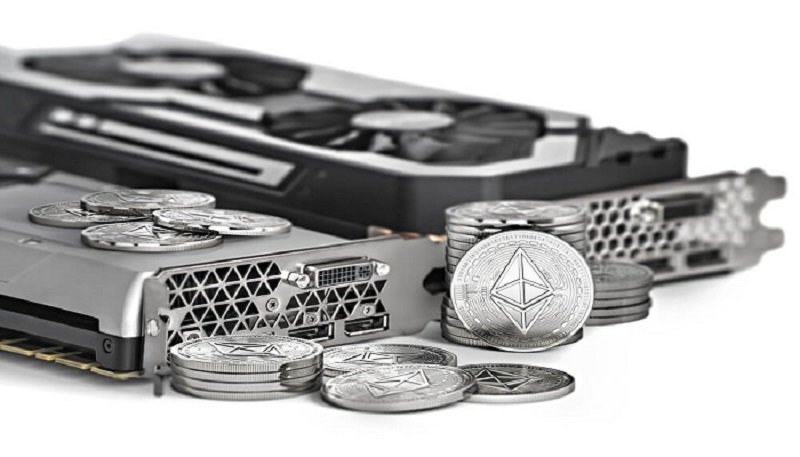This word “mining” is adapted from mining for gold or other precious metals. This word “mining” is brought into the sphere of cryptocurrency as an analogy of gold mining. Ethereum mining means digging for more Ethereum. It means the addition of more Ethereum to increase the volume of Ether in circulation. Ethereum mining also means that the Ethereum network must be kept secure and make it remain secure because the Ethereum Network not only creates and verifies but, it also publishes and propagates blocks in the Ethereum blockchain.

How does Ethereum mining work?
Ethereum mining is done by mining computers. These mining computers operate with fixed time intervals, for example, every ten minutes. Every ten minutes these mining computers collect a couple or more of hundreds of pending transactions of Bitcoin or Ethereum. These pending transactions of Bitcoin or Ethereum are called a block. The mining computers then turn these blocks into a mathematical puzzle. The miner who becomes successful in finding the solution to the mathematical puzzle receives a reward of 25 Bitcoins or Ethers. This reward is received only after another 99 blocks have been added to the ledger. The first miner, who becomes successful in finding the correct solution to the mathematical puzzle, makes an announcement of the solution to others on the network. The other miners check the solution the puzzle to be correct or not and also whether the miner has the right to spend the money or not. This block is cryptographically added to the ledger only after the granting of approval of other miners. Only then, the miners can move on to the next set of transactions forming a chain of blocks, or a blockchain. This is a system to provide the incentive to miners and also for ensuring and granting validity to the transactions. This system is also very effective in providing protection against double-spending a Bitcoin or Ether.
What is Ethereum Mining Pool?
Ethereum Mining Pool is an effective method to mine Ether. A minor needs to acquire the hardware needed to mine Ethereum first. Then only the miner decides about which Ethereum Mining Pool she/he is going to join.
An Ethereum Mining Pool is where miners pool their resources. An Ethereum Mining Pool is of tremendous help to the miners to get more frequent payouts. Otherwise, the miners only get paid when she/he is able to solve a block of Ether. The high-performance Ethereum Mining Pools provide instant payouts to the miners and they receive their Ethers immediately upon reaching their threshold of configured payment.
The Advantages of Ethereum Mining Pool
The high-performance Ethereum Mining Pools provide real-time Pay Per Last N Shares (PPLNS) scheme to the miners. They also make very accurate reporting of hash rates to the miners. These Ethereum Mining Pools make payments for all Ethereum rewards such as blocks, Uncles, and Fees. These Ethereum Mining Pools also make instant payouts to the miners. These Ethereum Mining Pools have customizable thresholds for making minimum payments, having the standard set at 1 Ether, Minimum 0.05 Ether, to Maximum of 10 Ether. All these Ethereum Mining Pools have global mining network with servers protected against Distributed Denial of Service (DDoS) attacks. The services of these Ethereum Mining Pools are available for 24×7 for 365 days through local and global failover services. These Ethereum Mining Pools offer full stratum support which provides support to all miners of Ethereum. These Ethereum Mining Pools charge low Uncle rates as they have very efficient engines for mining. They charge around 1% as their fees. These Ethereum Mining Pools provide statistics for every worker at a global level as they have a system for E-mail notification and warnings for invalid shares. They have professional help desks for the miners and have applications for third-party iOS, Android, and telegram.